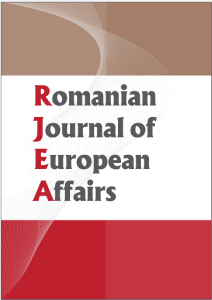Can the EU’s Enhanced Co-operation Mechanism Provide Solutions to the “Single Undertaking” Problems of the WTO
Dragoş Negrescu, Gilda Truică
Abstract:
The “Single Undertaking” is a feature making the WTO unique among multilateral organizations. Introduced at the end of the Uruguay Round, it seemed to promise a much smoother functioning of the multilateral trading system. Subsequent developments have not entirely validated these expectations. The problems engendered are remarkably similar to those faced by the process of deepening integration within the European Union, hence the modalities devised in the latter for overcoming them may offer a very useful source of inspiration.
Keywords: Single Undertaking, Tokyo Round, Uruguay Round, WTO
European Union and the Challenges of Globalization
Florin Bonciu
Abstract:
The paper analyzes the current implications of globalization on the European Union. While the EU recorded significant successes mainly in the filed of integration and enlargement, the implications of globalization seem rather worrisome. The EU – 15 member countries are facing increased competition from both developed countries and emerging countries like China and India and this fact determines a need for reflection upon the European integration model. Until a solution is found, some companies and countries are tempted to apply protectionist measures which can not be effective in the long run. Looking at the structural causes of the current EU lack of competitivity the paper proposes a solution based on accepting and capitalizing on European diversity.
Keywords: enlargement, globalization, Lisbon Agenda, protectionism
Globalization and Trade Liberalization: “A Threat or an Opportunity”?
Andrei-Stefan Enghiş
Abstract:
The present paper attempts to evaluate the global economic system through the perspective of neoliberalism, which advocates for the continuous liberalization of trade and the progressive opening of the markets in different economic sectors. Seeking to observe the neoliberal vision on the world economy, the study relies on two speeches delivered by the former European Union’s Trade Commissioner, Pascal Lamy in a time span of four years, between 2000 and 2004, a period marked by two important WTO Ministerial Conferences: the Doha 2001 WTO Ministerial Conference and the Cancun 2003 WTO Ministerial Conference. Nonetheless, in order to provide a balanced analysis of the world economic system, the study provides a brief introspection into the other theoretical vision, alterglobalism, which advocates for a different understanding of the relations between trade liberalization, state intervention in the economy and the reduction of the existent economic disparities. The analysis is divided into three sections: the first section portrays the two antithetical visions, neoliberalism and alterglobalism, while the second one focuses exclusively on the person of Pascal Lamy and on the speeches that represent the core of this study. The third section consists in a comparative analysis of the two divergent economic perspectives, trying to identify the main opposing points, as well as those points on which the two economic perspectives may converge. The conclusion looks closely at the relations between globalization and trade liberalization and the criticism brought about by alterglobalism, the archrival of neoliberalism and trade liberalization. It also considers the relation between the two neoliberal speeches of the former EU Trade Commissioner, attempting to identify potential links or divergent attitudes between the two.
Keywords: Cancun Ministerial Conference, Doha Ministerial Conference, EU trade, globalization, neoliberalism, trade liberalization, WTO
Globalization of Trade and Transportation between the ASEAN + 3 Countries and the European Union
Ho Thi Thu Hoa, Heda Hansenová
Abstract:
The paper discusses the globalization process of trade and transportation between the ASEAN + 3 countries (ASEAN plus three – APT) and the EU (the European Union). An East Asian 10+3 (ASEAN plus three) cooperative framework joined by ASEAN, China, Japan and South Korea, is proceeding towards institutional direction which will play a very important role in the regional and international economic development. The paper will intensively not only focus on recent trade boom; and the necessity of transportation in order to meet objective requirements of increasing trade relations between the ASEAN + 3 and the EU but also forecast new potentials in relations of transportation and trade of the ASEAN + 3 with EU candidate member countries .
Keywords: ASEAN + 3, globalization, the EU, trade, trade boom, transportation
Antidumping Rules in Trade Negotiations: The Case of the Western Hemisphere
Germán A. de la Reza
Abstract:
This paper studies antidumping trade negotiation in the Americas. It focuses on three important sides of the problem: the theoretical background of the antidumping effects on industry and consumers; the impact of the antidumping investigations in the inter-American trade, highlighting the concentration of costs on the small economies, and the alternatives voided to diminish the aggravation of the hemispheric asymmetries. The conclusion observes the importance of achieving a more-balanced negotiating outcome, taking into consideration both, economic and administrative disparities.
Keywords: antidumping, Free Trade Area of the Americas, protectionism, trade negotiations






